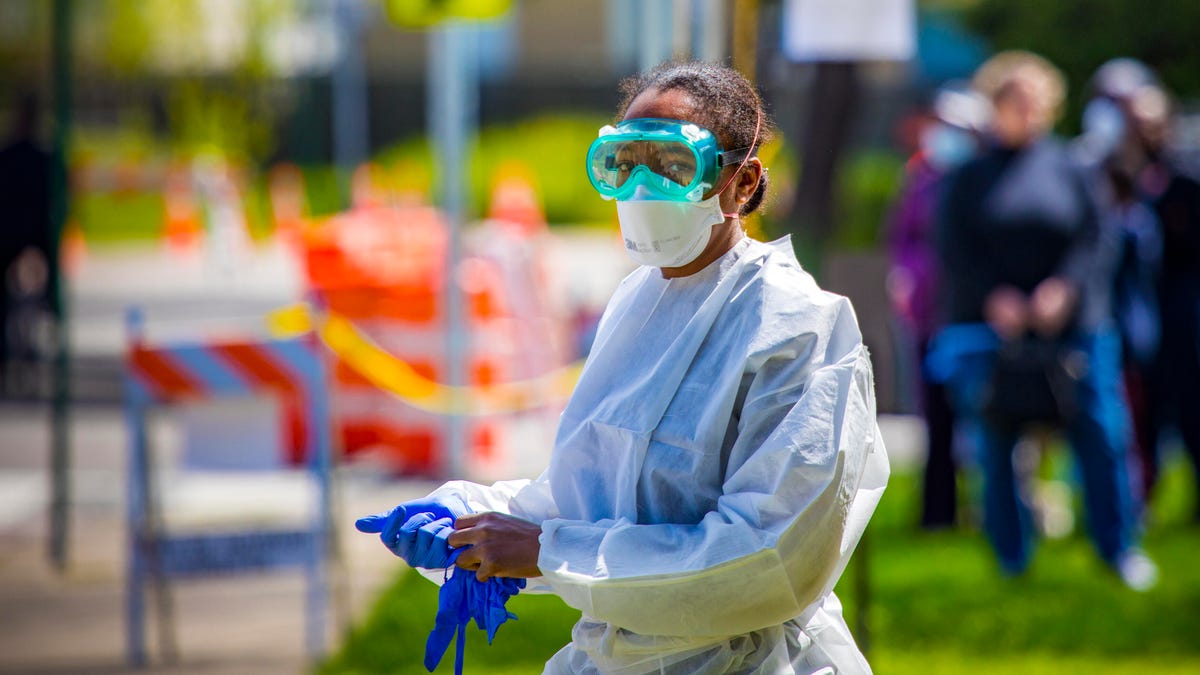Nurses fighting coronavirus: We should be able to do better
Health care workers on the front line of the pandemic are combating misinformation and still fighting to get proper protective gear.

A medical worker wears protective outside a coronavirus testing facility in Hayward, California.
Battling the coronavirus pandemic on the front lines, nurses don't have the option of sheltering at home. Instead, they work in hospitals and medical offices, caring for patients with COVID-19 while trying to avoid contracting the virus themselves and securing the masks and protective gear they need.
It's a tough fight, but as registered nurse Deborah Burger told CNET Editor in Chief Connie Guglielmo, her colleagues are in the battle for the long haul. And it's a fight that starts outside the emergency room by combating misinformation about the coronavirus that's clogging the public discourse.
Nurses are "acting to make sure we put pressure on our governments to get the protection we need," said Burger, who's also the president of National Nurses United, the country's largest nurses union and professional organization. "We know there is a lot of misinformation out there, and we are trying to provide nurses with accurate and reliable information so they can do their jobs safely and care for their patients in a safe manner and not become vectors of this disease in their hospitals."
Examples of misinformation include promises that COVID-19 is no worse than the common flu, that existing drugs can help cure the disease in the absence of a vaccine (which isn't expected for another year) and recommendations about the kinds of masks that are safe to use.
More masks
Deborah Burger
Masks, of course, remain a critical issue for health care workers. Burger says a shortage of N95 masks, which are the most effective protection for health care workers, remains a huge problem. Nurses "are being told today to reuse masks," she says. "They are even considering reprocessing and resterilizing masks, and we believe this puts nurses' health and patients' health at risk when we know this disease is extremely contagious."
The contagious nature of the coronavirus and its rapid spread around the planet are two reasons it's different from any in history like SARS, H1N1 MERS and Ebola where getting the equipment into the right place at the right time was a challenge. "We have learned a lot from these other pandemics," she says. "So protections are in place, but they are going unused or ignored...We should be able to do better, and it is unfortunate that we are not."
Now What is a video interview and panel series with industry leaders, celebrities and influencers covering the major changes and trends impacting business and how consumers connect in the "new normal" 2020 world and beyond. There will always be change in our world, and there will always be technology helping us navigate that change. We'll discuss the twists, turns and potential solutions along the way.
We'll post more clips from the interview soon. Until then, check out a list of COVID-19 resources from National Nurses United.

